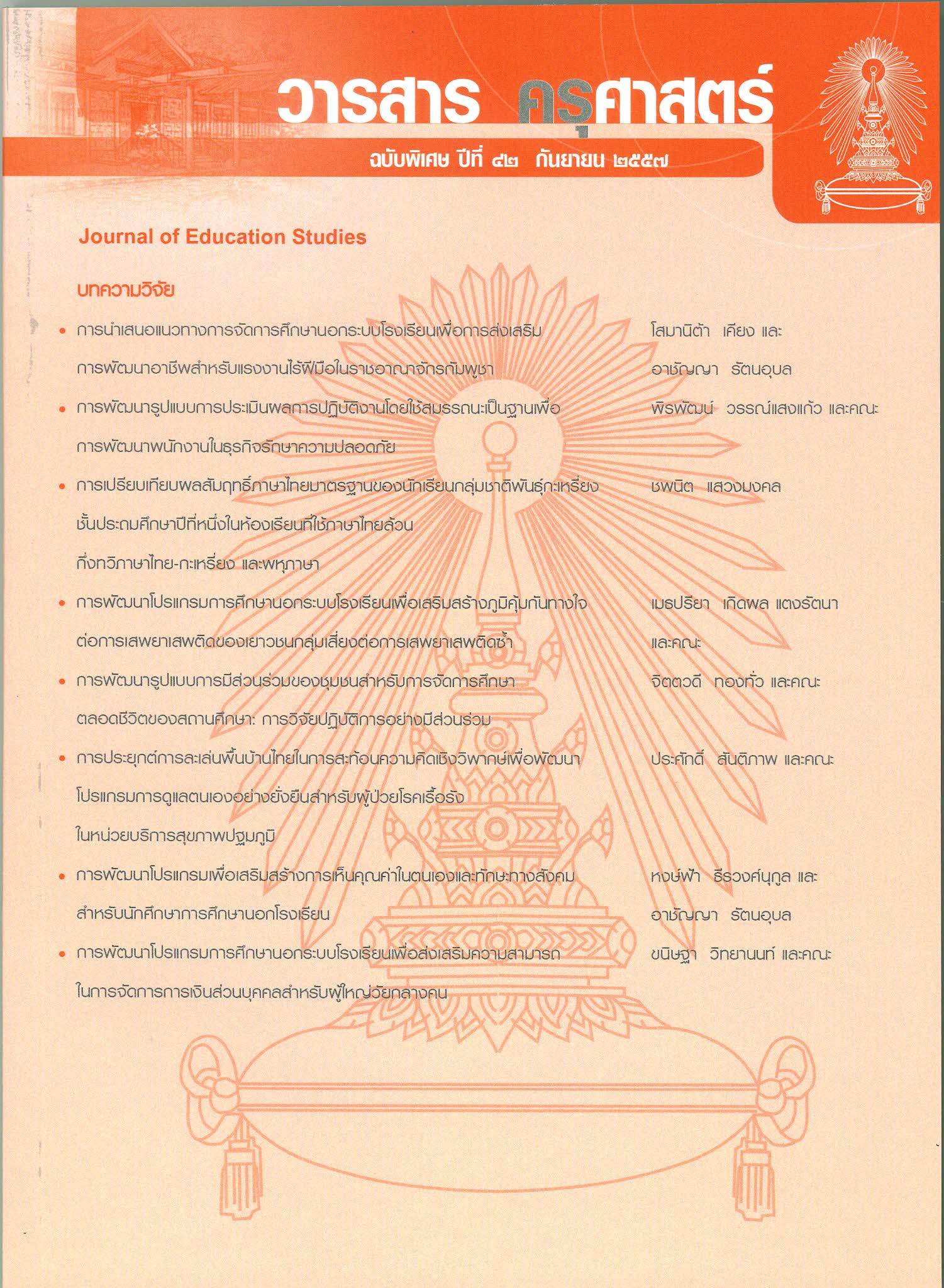The Development of a Community Participation Model for Organizing Lifelong Education by Educational Institutions: A Participatory Action Research
Keywords:
MODEL, PARTICIPATION, LIFELONG EDUCATION, COMMUNITY EDUCATION, EDUCATIONAL MANAGEMENT IN EDUCATIONAL INSTITUTIONSAbstract
The purposes of this research are: 1. to study the conditions and relevant factors of community participation for lifelong education management in local educational institutions; 2. to compare factors of community participation for lifelong education in educational institutions; and 3. to develop a model of community participation for lifelong education in educational institutions through participatory action research The target population was purposive sampling with criteria in the amount of 1,846 people from good schools in sub-districts, in project provided by the OBEC in 2010 and 25 people from 1 good school to conduct the PAR process. The research instruments consisted of a questionnaire, an in-depth interview form, and a focus group discussion. The data was analyzed by using computer programs and content analysis.
The research results revealed that: 1) The conditions for community participation for lifelong education management in educational institutions overall were in the middle range (3.44); 2) Comparing factors of having community participation for lifelong education management in educational institutions found six areas of correspondence, namely: administrators, teachers, the working practices of the particular educational institution, the school board of education, the establishment of a network, and organizing learning activities. Factors related to the community had six areas, namely: community leaders, relationships within the community, learning resources, building groups and networks within the community, establishing participatory roles, and learning exchange. 3) The results of developing the model found that the model consisted of 4 parts: 1) The basic conditions for community participation consists of: educational organizers, target groups, knowledge provided, learning activity methodology, learning materials, educational objectives, community learning resources, and the benefits received by the community from their participation; 2) Processes of having community participation consists of participation in: studying community-based information, brainstorming, planning, management, receiving benefits, and evaluation of the education management; 3) Factors in having participation of educational institutions and the local community; and 4) Management of lifelong education for the educational institution.




